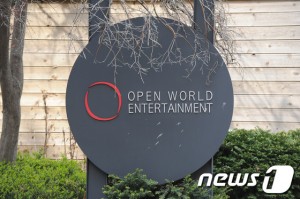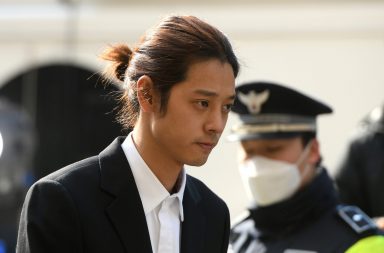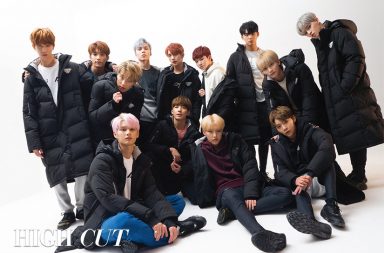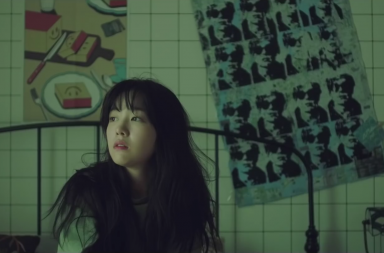
Warning: discussion related to sexual harassment, sexual coercion, and violence follow. Please proceed with caution.
The life of a K-pop trainee is, for an outsider, unimaginably difficult. The competition to entering the industry is fierce with multiple contentious stages of auditions. Once they are accepted, their fate is by no means assured; they are always working under threat of elimination and uncertainty of their debuts. The custodians of their destinies are their entertainment companies, to whom they entrust their futures. Idol trainees are placed under the care of their management and it comes as no surprise that this almost absolute power results in abuse.
At the end of May, a CEO of an unnamed agency was arrested for the second time for brokering his agency’s female trainees. Supreme Court Justice Kwon Soo-il sentenced CEO Kang to 20 months in prison and fined him ₩20 million KRW ($17,785 USD) after indicting him on charges of prostitution. In a previous trial he was sentenced to 18 months and fined ₩15 million KRW. The sentence for his case was extended with the discovery of new evidence. The usual sentence for a charge of prostitution is a year in prison or a fine of 3 million won ($2,600). Those organising prostitution could face up to three years imprisonment or a 30 million won fine under the Act on the Punishment of Acts of Arranging Sexual Traffic.
Sponsorship or transactional sex between influential entertainment executives and aspiring celebrities, is a thinly veiled, often accepted part of the industry. Wannabe idols enter the industry at a young age and most are separated from their support structures to commit to their new life. This separation from family and friends sometimes extends to confiscation of cellphones; isolating them even from information. Trainees have little access to experience equipping them to protect themselves from corrupt executives.

A recent revelation by IBI’s Kim So-hee on the first episode of KBS’ Idol Drama Operations Team detailed how a former agency head had proposed marriage to her. So-hee related how the CEO of her previous agency “saw her as a woman” and repeatedly asked her to marry him. She said that she was uncomfortable but couldn’t reject him outright and thought that she would have to endure it in order to debut. She related the story to the shock of her cast mates, saying she thought her experience was a common one. While the women she spoke with did not have a similar experience; statistics support that So-hee’s ordeal of what we’ll call sexual harassment for ease of reference is not rare. Propositions for sponsorship are frequent with two thirds of actresses surveyed in 2010 responding that they had been solicited to have sex with a potential patron.
Female trainees are particularly in danger for sexual exploitation, when looking at research supported risk factors. Experts in a 2012 study by the Korean Women’s Development Institute said female workers, especially those in contract positions, were more vulnerable to workplace bullying and sexual harassment than male counterparts. A study by the Ministry of Gender Equality and Family in 2015 confirmed the prevailing belief that individuals are more likely to be sexually harassed when they are female, younger, and employed in more vulnerable irregular positions. Female trainees, who often begin their careers in high school, check all the boxes for vulnerability to predators.
Even older trainees with greater life experience can be manipulated if they are desperate enough to debut. Consider the case of management agency head Mr. Lee (38-years-old); who allegedly assaulted a newly-signed trainee on 7 April 2016. He reportedly told the 27-year-old girl group member that if she wanted to become a celebrity, she needed to learn to enjoy lobbying with sex and stripped her clothes.

Assaults, propositions, and stories of harassment are recurrent but seem to be normalised, without government change to regulations of the industry, until a tragedy occurs.
Jang Ja-yeon’s suicide and the Open World Entertainment scandal were two turning points for pronouncements to protect trainees.She was found dead in 2009 in an apparent suicide. She left behind a handwritten note in which she claimed she was coerced into having drinks and sex with several public figures. The memo launched a manhunt for high-profile figures named, but failed to produce concrete evidence against the alleged perpetrators.
The Popular Culture Industry Act by the Ministry of Culture Sports and Tourism, was introduced in 2015 following Jang’s death. The Act is a comprehensive piece of legislation consisting of nine parts relating to entertainment contracts; the rights and obligations of companies and entertainers, education and mental health support for the artists, trademark rights and attribution, distribution of revenue, dispute resolutions, protection of youth and artists, and subsidiary agreements. It further stipulates that all entertainment agencies must comply with a standardised contract drafted by the Fair Trade Commission (FTC). The FTC is still attempting to enforce compliance from several large companies, whose agreements contain unfair terms and conditions.
The bill also made it mandatory for entertainment agencies to obtain a government-approved certificate in order to continue their business as a legal entity. It laid the foundation to punish agency operators who force their trainees to sell sex. Violators face up to 10 years in prison or a 100 million won fine. Those who push underage entertainers to dress indecently or perform lewdly against their will are also able to be charged. The law also employs stricter rules to protect the right of student entertainers to study and sleep, limiting their work hours to between 10 a.m. and 6 p.m. a day, and 40 hours per week.
The Act further stipulates that new agencies need to receive approval from the Ministry of Culture, Sports and Tourism before they recruit trainees. Their board of directors must have at least one executive who has been in the showbiz industry for a minimum of four years. Any agency that has ever been penalised for any type of crime is ineligible. Minors and bankrupt individuals are also banned from running agencies.These requirements are all an attempt to prevent nefarious agents from setting up illegitimate companies aimed at exploiting young entertainment hopefuls. They do not address companies where issues of abuse may be happening alongside legitimate business.

The Open World Entertainment scandal took place at a company that had been established since 2007 and was managing two boy groups (The Boss and X-5) during the scandal. The implicated CEO had operated as an entertainment planner for five years prior to establishing the company. While he was called a ‘former boss of a criminal gang’ by one publication there were no records of previous criminal convictions. Open World Entertainment would have probably cleared the requirements for being a registered agency.
The Act also does not stipulate protections for those who come forward to report abuse and the existing legal protections for victims of sexual assault or harassment are basically non-existent. In the earlier mentioned case of Mr. Lee: the victim of his assault was charged with being complicit in the act because she allegedly lay down on the bed herself without any clothes on and did as he said.
“It turns out that the Korean government treats its K-pop industry the way that the American government treats its automobile and banking industry, meaning that these are industries that have to be protected,” Euny Hong, the author of The Birth Of Korean Cool said.
The difficulty of introducing increased regulations into a highly monetarily successful industry is that it disadvantages those in power. The government often works hand in glove with companies to generate an immense amount of revenue from K-pop. The problem is that while the business model is definitely profitable, it comes at the expense of the human rights of the entertainers. Lax regulation of business owners’ authority results in a myriad of abuses of power. For the young women involved in K-pop, sexual coercion and harassment seem to be an unexceptional, hideous reality that could be changed with greater protections for trainees and victims of assault and harassment. Hopefully, there will be no need for another devastating, public incident for changes to be made to legislation to give trainees better working conditions and safety.
(Nate [1],[2], The Fact, NPR, Korea Times [1], [2],[3], [4], [5], [6], [7] Korea Herald [1] The Hankyoreh, Inquirer, Moonrok, Images via KBS, News1, AsianWiki)


